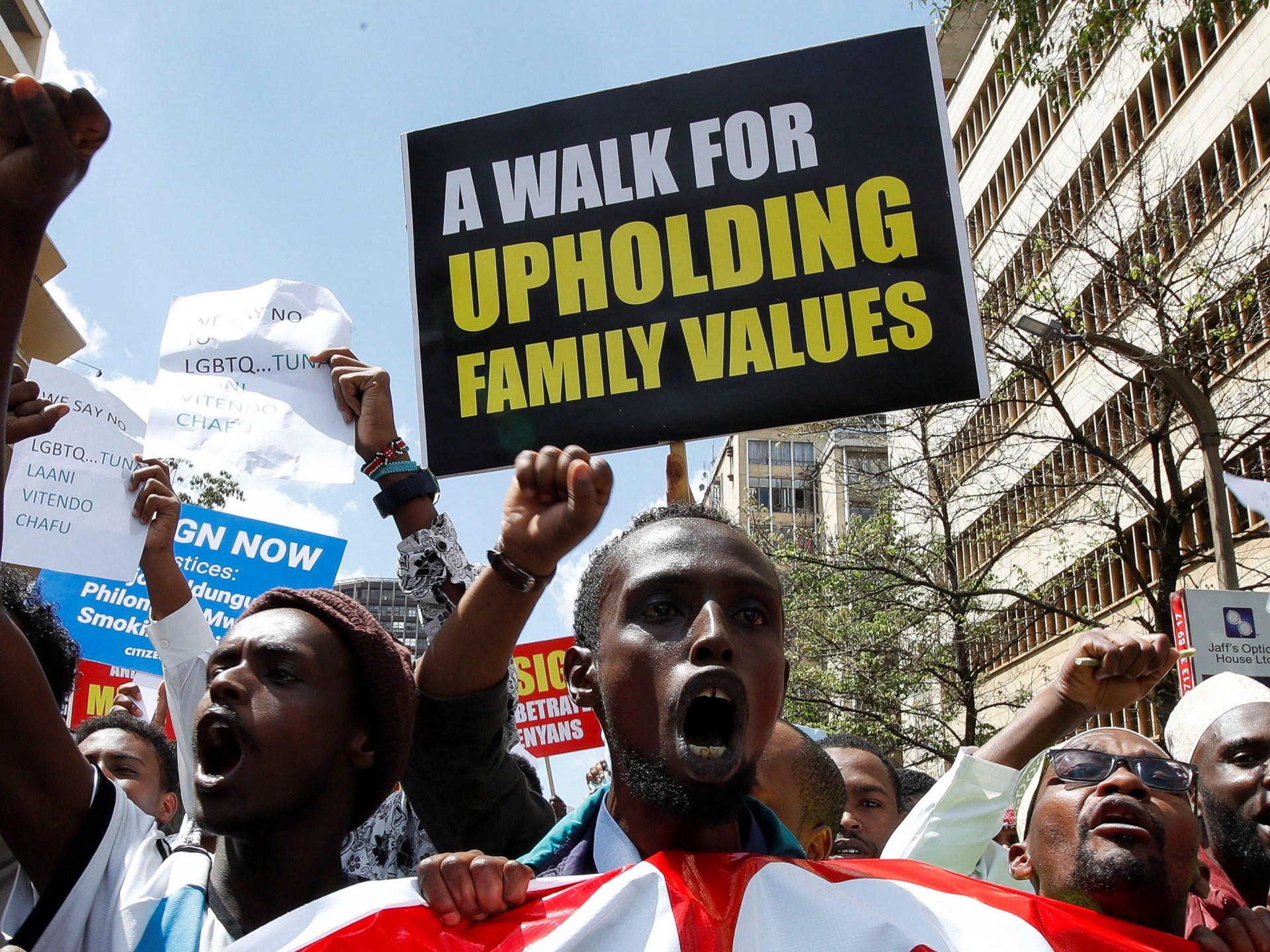Forces , that , promote , conservative social agendas with roots in colonial and missionary legacies are increasingly influencing debates about cultural preservation and traditional values in Africa. These movements aim to impose rigid, exclusionary values that are incompatible with the continent’s diverse and historically dynamic cultures and are frequently supported by generous Western funding .
This dynamic was most recently demonstrated last week in Nairobi, when the Africa Christian Professionals Forum’s second Pan-African Conference on Family Values sparked controversy by claiming to defend “traditional” African family values.
The event’s foreign supporters include Family Watch International, the Center for Family and Human Rights, and the Center for Reproductive Health, both of whom are known for opposing comprehensive sex education and LGBTQ rights.
Despite having a strong connection to Western conservative funding, these organizations frequently present their positions as being inherently African. Some of them are regarded as hate groups by the Southern Poverty Law Center in the United States.
Prior to the conference in Nairobi, it was revealed that the speaker list was made up entirely of white men, which highlighted this duplicity.
Participants were urged to “resist growing trends that seek to redefine marriage, weaken the institution of family, or devalue human sexuality” and rise up in the fight against a “new colonialism” during the event.
The conference’s narrative of preserving tradition, which was on display in full, is not at all organic, though. It itself, in contrast, continues a pattern established during the colonial era, when strict social hierarchies and patriarchal norms were imposed by imperial powers while attempting paradoxically to preserve and “civilize” indigenous cultures.
Missionary and colonial institutions did so by reimagining and rearranging African social structures in accordance with Victorian ideals, incorporating rigid gender roles and heteronormative family structures, and creating supposedly antiquated and unchanging “traditions” to support them.
The latter were themselves based on the selfish notions that Africans were “noble savages,” living in peaceful conformity with supposedly “natural” values, trapped in petrified “culture,” and undisturbed by the moral issues that plagued their civilized Western counterparts, whose corruption they needed to be protected.
As the conference demonstrated, local political actors and governments frequently support these agendas because they feel this is politically expedient or because they are in true agreement with their conservative worldview. The movements receive support from some levels of the NGO sector, which gives them a sense of legitimacy while obscuring their colonial roots.
The Kenya Red Cross Society (KRCS) was accused of endorsing the event by allowing it to take place at the Boma Hotel, which it co-owns, in the wake of the Nairobi conference. Even though KRCS has denied having any direct involvement with the event and pointing out that it was not involved with the hotel management’s daily operations, the controversy highlights the difficulties and dangers that even well-intentioned humanitarian organizations face.
Humanitarian institutions have historically been involved in colonial activities, so it’s not surprising that they struggle to interpret narratives that attempt to bolster colonial goals while promoting the preservation of indigenous values.
There is growing disagreement over how to respond to growing calls to “decolonize” the aid industry’s activities, which is a part of the issue. Recognizing the importance of local practices and indigenous values in this process is one aspect.
However, when organizations fail to critically examine whether the values labeled as indigenous or, in this case, “African,” actually reflect and embed colonial assumptions and beliefs about indigenous societies, they risk unintentionally perpetuating harmful agendas.
Decolonization and decoloniality are two terms that need to be understood when confronted with stories like those that were presented at the Pan-African Conference on Family Values.
Although closely related, the two frameworks differ. The first focuses primarily on transferring power to the colonized, while the second focuses on colonization’s legacy logics and values.
Many African nations were burdened with elites, states, and governance arrangements that upheld colonial frameworks and approaches as a result of the 1960s’ decolonization. A prime example of this was Kenya itself.
A prominent Kenyan politician’s representative Masinde Muliro said in 1967, “Today we have a black man’s Government, and the black man’s Government administers exactly the same regulations, rigorously, as the colonial administration did.”
Similar to aid, which is focused solely on supporting local actors and not onempowering local actors, may end up reinforcing the deliberate shifting of colonial-era values into true African traditions.
By allowing them to masquerade as cultural preservation, decolonization is a recipe for legitimacy. Not just for humanitarian organizations, but also for societies as a whole, it is crucial to acknowledge the historical roots of these alleged traditions. Without this awareness, movements that use tradition as a means of oppression rather than as a tool for reconciliation and unification run the risk of becoming successful.
The lesson is clear: to move forward, we must be willing to constantly consider how contemporary cultural and social norms and debates are shaped by colonial legacy. Only then can we create a future that is truly diverse and inclusive, regardless of nationality.
Source: Aljazeera

Leave a Reply